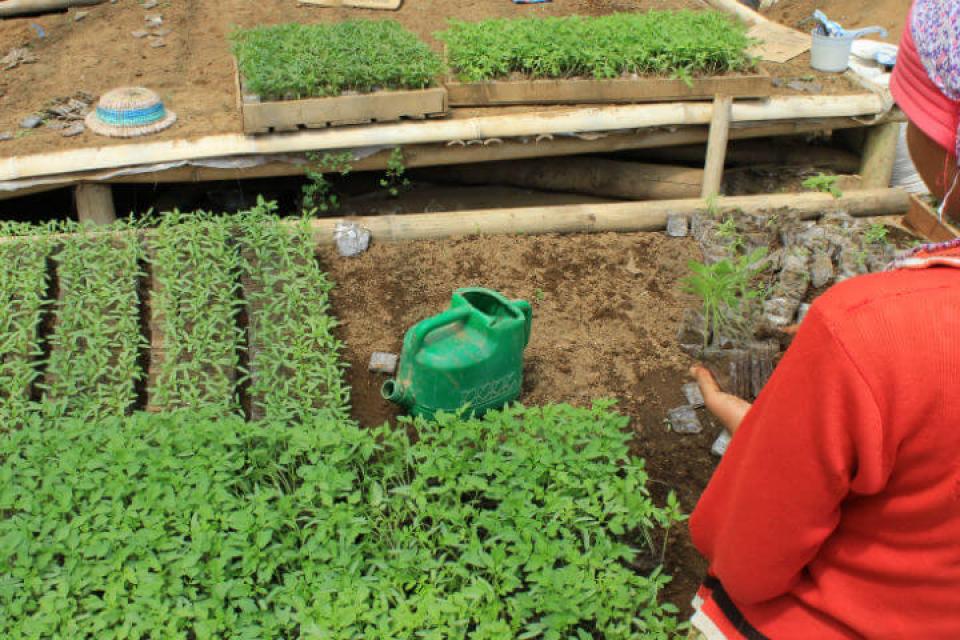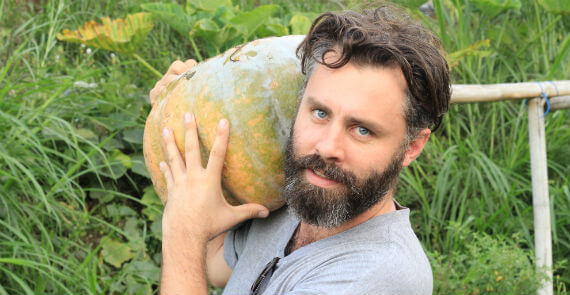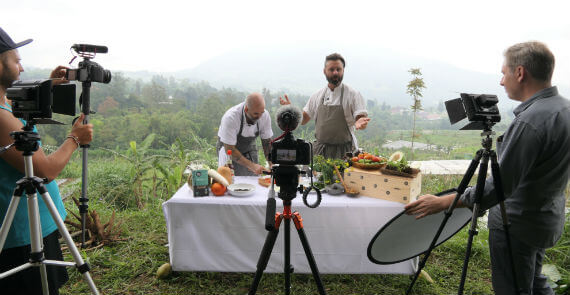Over the past six months with my brother who is a bali based chef we have been building a company which works with regional farmers to market their produce in Singapore.
We have worked with rice farmers, agricultural charities, co-ops and distributors. Often at a dinner or in a social setting when people ask what I am doing or what is our company about they say something along the lines of “so you’re doing farm to table?” and I kind of nod because yes the produce does come from a farm and yes it usually makes it to a table. But the more I think about this label the more I start to question what is actually means.
So I have seen farm to table at its most pure form. For while my brother was the executive chef a an Ubud resort which had it’s own plot of land and small farming operation. We would walk to the farm pick items ready to be eaten, walk back, they would be prepared in the kitchen and served.
But clearly this is no a reality for people who live in a city and the farm didn’t provide anywhere near the amount of proceed the restaurant required. I’ve also visited some of the great but small farming operations in Singapore who reduce the journey our food takes to our tables. These farms makes up less than 0.87% of Singapore already scarce land. So in the Singapore context if using proximity as a measure ‘farm to table’ is only realistic for the small group of people for select items.
Duncan from Frank Food Company
So one obvious measure is to consider intervention in the process of farm to table. Clearly processed or manufacturing of raw products probably means they don’t qualify. But If I apply this to our organic vegetables that we bring to Singapore, we try to get them to Singapore tables within 12 hours but our process is farm to ground shipping, to customs, to airline, to customs, to freight handler to final mile and then to table. When I see the words ‘Farm to Table’ at a retail store I can’t help thinking, not only do they have to go through all the channels we do but in addition the products go via wholesalers, distributors, retail warehousing and of course sit on retail shelfs.
Location Shoot with Frank Food Company Team
One of the major surprises I got when meeting farmers directly at their farms wether be a wine grower in Australia or an organic veggie farmer in Indonesia, was that they told me almost none of the buyer visit their farm or want to understand their farm practices beyond the fact they have been certified. This is probably the reason why I still have trouble understanding the label farm to table in retail, do they really have a connection to the farm?
The ultimate question that comes to mind in the Singapore context is ‘Farm to Table’ just another marketing ploy or a bit of greenwash? From this I personally am starting to conclude that while the statement “Farm to Table’ implies it’s all about the journey the food takes, it’s not really at all.
It’s actually more about ‘Farm knowledge to table’. By understanding the farming practises that went into the on your table then you can really have a appreciation for what you are consuming and of course the effort that went into it. So by that measure I think Singaporeans can consume produce which comes with ‘farm to table’ knowledge and real understanding of how the produce was farmed and that sellers of these products are responsible for providing that information to their customers, especially if they are making ‘Farm to Table’ claims in their marketing.
Happy Eating Liam













